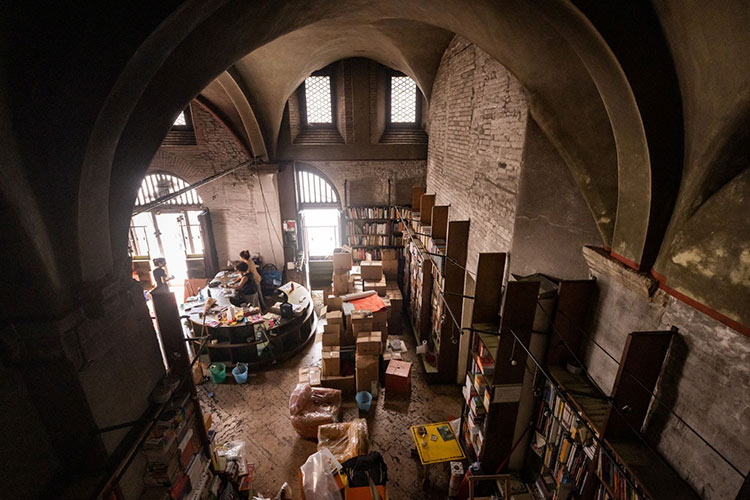Claire Cohen - Yesterday
It is 8.30 on an autumnal Wednesday morning, and a group of people are standing on a grass verge outside Bournemouth’s abortion clinic. One middle-aged man holds up rosary beads. A silver-haired woman is carrying a placard which reads ‘Pregnant? Need Help?’ and is accompanied by a phone number. They have gathered to protest against abortion as part of a six-week ‘vigil’ organised by Texas-based group 40 Days For Life.

Anti-abortion demonstrators hold placards in a pro-life protest in Parliament Square, London, last month - Alastair Grant/AP© Alastair Grant/AP
The group holds internationally-coordinated demonstrations around the world, twice a year - but this is the first since the US Supreme Court overturned Roe vs Wade in June, after which a dozen US states banned abortion in almost all circumstances.
And, since the demonstration began in September, anti-abortion protesters have gathered in more than a dozen other cities across Britain, including Leeds, Reading, Edinburgh, Sheffield, Cardiff, Liverpool, Southampton and Brighton - hundreds of volunteers operating a rota system to ensure a round-the-clock presence.
"We have seen an increase in protests outside clinics since Roe was overturned. It feels like they've been emboldened. As though they think this is their time," says Katherine O’Brien at the British Pregnancy Advisory Service (Bpas), the UK’s largest abortion provider.
Supporters of 40 Days for Life now stand accused of using US-style tactics to harass women as they enter clinics, including encouraging them to take so-called ‘abortion reversal pills’. These contain high levels of progesterone to, it is claimed, counter the effects of the medically approved abortion drugs mifepristone and misoprostol. Also known as 'telemedicine' or 'pills by post', these were widely adopted during the pandemic, so women could manage their own abortions - within the first ten weeks of pregnancy - at home.

Protesters in favour of abortion rights at the US Embassy in London in June this year following the US Supreme Court decision to overturn Roe v Wade - Vudi Xhymshiti/Anadolu© Provided by The Telegraph
On August 30 this year, the telemedicine system became permanent in England and Wales, meaning that it now tends to be the most vulnerable who attend clinics in person: under-16s, women experiencing abuse, or those who have had a diagnosis of foetal anomaly in a wanted pregnancy. It is they who have to run the gauntlet of the protestors standing outside.
There have been fresh concerns that this so-called ‘reversal’ treatment may be offered at a new ‘crisis pregnancy centre’ which opened last month in Edinburgh and is funded by US group Stanton Healthcare, founded by US Christian activist Brandi Swindell and which has links to anti-abortion organisations. Its website promises to give women ‘alternatives to abortion’ but a spokesperson tells me that “there are no plans to offer abortion pill reversal”.
On its website, 40 Days for Life falsely states that ‘one in ten [women] experience immediate complications (many of them life-threatening) after taking the abortion pill.’ Yet NHS guidance makes it clear that just 1 in 1,000 abortions will have serious complications, such as heavy bleeding, while 70 in 1,000 may need a secondary, usually minor, procedure. This summer, the Royal College of Obstetricians & Gynaecologists debunked the effectiveness of so-called ‘reversal pills’, saying that there is “no reputable evidence” they work. The American College of Obstetricians and Gynaecologists has warned that given improperly, progesterone can cause damage to the nervous, cardiovascular and endocrine systems. A 2020 medical trial was ended after several patients experienced serious haemorrhaging.
In an email, 40 Days for Life founder Shawn Carney - a 40-year-old Texan and father of eight - tells me that it is an “absurd claim that volunteers are handing out unregulated pills, when in fact, volunteers are simply providing information for alternatives to abortion and giving women a choice if they want other options.”
He claims that since he started the group in 2004, it has ‘saved’ 22,031 lives in 64 countries and persuaded 242 abortion workers to quit their jobs.
Granted charitable status last year, Stanton Healthcare already has a ‘crisis centre’ in Belfast which opened in 2015 and has previously been accused, by an undercover reporter, of wrongly telling women that abortion causes breast cancer (accusations it has denied).
It does offer free ultrasound scans, in an echo of the tactics I witnessed when visiting an abortion clinic in the US state of Missouri in 2019, where protestors in official-looking hi vis jackets outside the clinic would persuade women to instead visit their ‘crisis center’ - stationed down the road in a bus - for a free ultrasound scan in an attempt to persuade them to continue with their pregnancy. Pro-choice charities are concerned that, in the UK, this could amount to “reproductive coercion”.
“It is incredibly worrying that anti-abortion groups are peddling a medication that carries two significant risks,” says O’Brien. “Firstly, there is absolutely no evidence that this non-treatment works in terms of preventing miscarriage or, as they would describe it, ‘reversing an abortion’. Secondly, there is also a very real risk of haemorrhage from using these medications.
“This is an attempt to prevent abortion at any cost – including a woman’s health and wellbeing. That protesters might be encouraging women to take potentially harmful medications is yet more evidence of the growing need for buffer zones.”
On October 18 MPs voted by 297 to 110 in favour of an amendment to the Government's Public Order Bill, which would introduce national buffer zones and make it a criminal offence punishable by up to six months in prison to harass, obstruct or interfere with any woman attending an abortion clinic or any member of staff.
It still has several stages to clear before becoming law, including going through the Lords.
Jessica Bone of Sister Supporter, a British advocacy group that campaigns for buffer zones, points out that to achieve this nation-wide “going to be hard work, given everything else that’s going on in the political sphere”.
Parliamentary documents previously revealed that US-funded anti-abortion group The Society for the Protection of Unborn Children had written letters in the hopes of influencing Parliament to drop the amendment.
In Scotland, a buffer-zone battle has also broken out. Nicola Sturgeon recently backed the development of a bill - also supported by the British Medical Association and Royal College of GPs - to introduce them for all clinics in the country. 40 Days For Life has said that it would be prepared to help mount a legal challenge to Scottish buffer zones, prompting Sturgeon to respond: "Am I surprised that they want to try and export that to other countries and to stir up the same sort of opposition to women's rights? No, I am not. But I am pretty determined that I will do everything I can to resist it.”

40 Days for Life protesters outside a Marie Stopes clinic in London, in 2010 -
Meanwhile, campaigners and abortion care workers emphasise that such measures are needed more than ever. 40 Days For Life may claim that its supporters are engaged in “peaceful protest” including prayer, singing and fasting, but since the current demonstrations began on September 28, clinics around Britain have experienced what many describe as “harassment”.
“It does feel like something is shifting,” says O’Brien. “Protestors are turning up at clinics where we haven’t seen them before and being increasingly aggressive: standing outside the doors, directly approaching women with leaflets containing medically inaccurate information,” says O’Brien. “We've had baby booties lined up in bushes. And they pray so loudly that you can hear them in the consultation rooms. It’s incredibly distressing. The women we’re treating can come in close to panic attacks, in tears and really frightened.”
The current rhetoric of anti-abortion groups is keen to link the US and UK. On September 3, Carney flew to London ahead of the vigils to join a ‘March for Life’ and deliver a speech to a crowd of cheering supporters. “Greetings from a post-Roe United States of America!” he yelled. “We were able to overturn the law. If we can do it, you can do it.”
O’Brien confirms that US anti-abortion groups are actively recruiting in the UK, including younger members. “It’s mainly through churches and religious networks,” she says. “Sometimes churches will organise marches to the local abortion clinic, so they can have a vigil outside with the congregation. That increases numbers significantly.”
While the global trend edges towards decriminalisation, in Britain abortion remains illegal outside the 23 weeks and 6 day limit, and without the consent of two doctors. Two women in England are currently facing life sentences for ending their pregnancies outside these parameters. And while the Northern Ireland ban was overturned in 2019, the abortion service has yet to be commissioned - meaning 161 women travelled to England and Wales for terminations last year.
There are voices of dissent within the Government. Following the overturning of Roe, Conservative MP Danny Kruger said he didn’t agree that women had “an absolute right to bodily autonomy.” Chancellor Jeremy Hunt has said that he would favour halving the time limit in the UK to 12 weeks, Environment Secretary Therese Coffey has voted against abortion rights and Jacob Rees-Mogg has said abortion is never justifiable, even in cases of rape.
Prime Minister Rishi Sunak has abstained on all major votes linked to abortion rights since becoming an MP in 2015 - including last month's buffer zone amendment - only casting a pro-abortion vote in April 2021, voting in favour of giving the Northern Ireland secretary powers to commission abortion services there.
Katherine O’Brien thinks we can’t afford to be complacent.
“We are a pro-choice country, but there's a growing number of extremists targeting women and the Government's inaction reinforces the idea that what they're doing is morally and socially acceptable.
“We can see that this is the direction of travel, so we in Britain have to stop and think 'Is this where we want to go?’"















